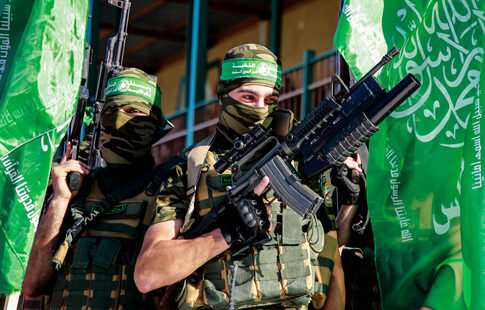Hamas political leader Ismail Haniyeh was assassinated in Tehran on Wednesday, following a meticulously planned attack involving an explosive device. The bomb, which had been covertly smuggled into a guesthouse in northern Tehran months prior, was detonated remotely once Haniyeh was confirmed to be inside his room. The explosion also killed a bodyguard and caused significant structural damage to the building.
Haniyeh was in the Iranian capital for the inauguration of Iran’s new president, Masoud Pezeshkian. The guesthouse, run and protected by Iran’s Islamic Revolutionary Guard Corps (IRGC), is part of a large compound known as Neshat. According to Middle Eastern officials, the bomb had been hidden approximately two months before the assassination, indicating a significant breach in security by the IRGC.
https://x.com/PahlaviReza/status/1818692379810894330
The assassination has been attributed to Israel by both Iranian officials and Hamas, though Israel has neither confirmed nor denied involvement. U.S. officials were briefed on the operation by Israeli intelligence after the assassination took place. The attack has raised concerns about escalating tensions in the Middle East, potentially leading to a multi-front conflict.
The explosion shook the building, shattered windows, and partially collapsed an exterior wall. Haniyeh, who had previously led Hamas’ political office in Qatar, had used the guesthouse multiple times during his visits to Tehran.
https://x.com/AlinejadMasih/status/1818948777610182927
The assassination comes as a significant intelligence and security failure for Iran, especially for the IRGC, which prides itself on protecting such high-profile figures.
Haniyeh was last seen in public at an exhibit at Tehran’s Milad Tower just hours before the blast. Iranian state media initially reported that Haniyeh had been killed by a rocket fired from outside the building, but subsequent investigations revealed the bomb was smuggled into the guesthouse and detonated from within, highlighting a severe lapse in internal security.
The attack threatens to derail ongoing negotiations to end the conflict in the Gaza Strip, in which Haniyeh played a key role as a top negotiator. The incident underscores the vulnerability of even well-guarded locations and raises questions about the effectiveness of Iran’s security measures.
This assassination marks a pivotal moment in the Israeli-Hamas conflict and has the potential to provoke further violence in the region, destabilizing the already fragile geopolitical landscape of the Middle East.


